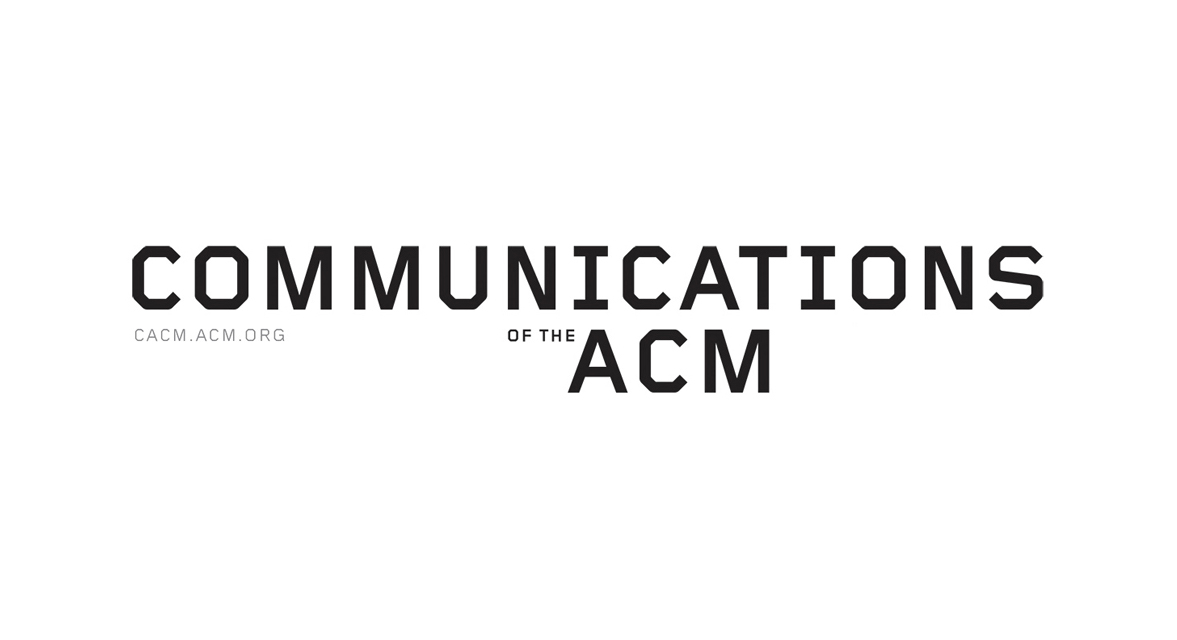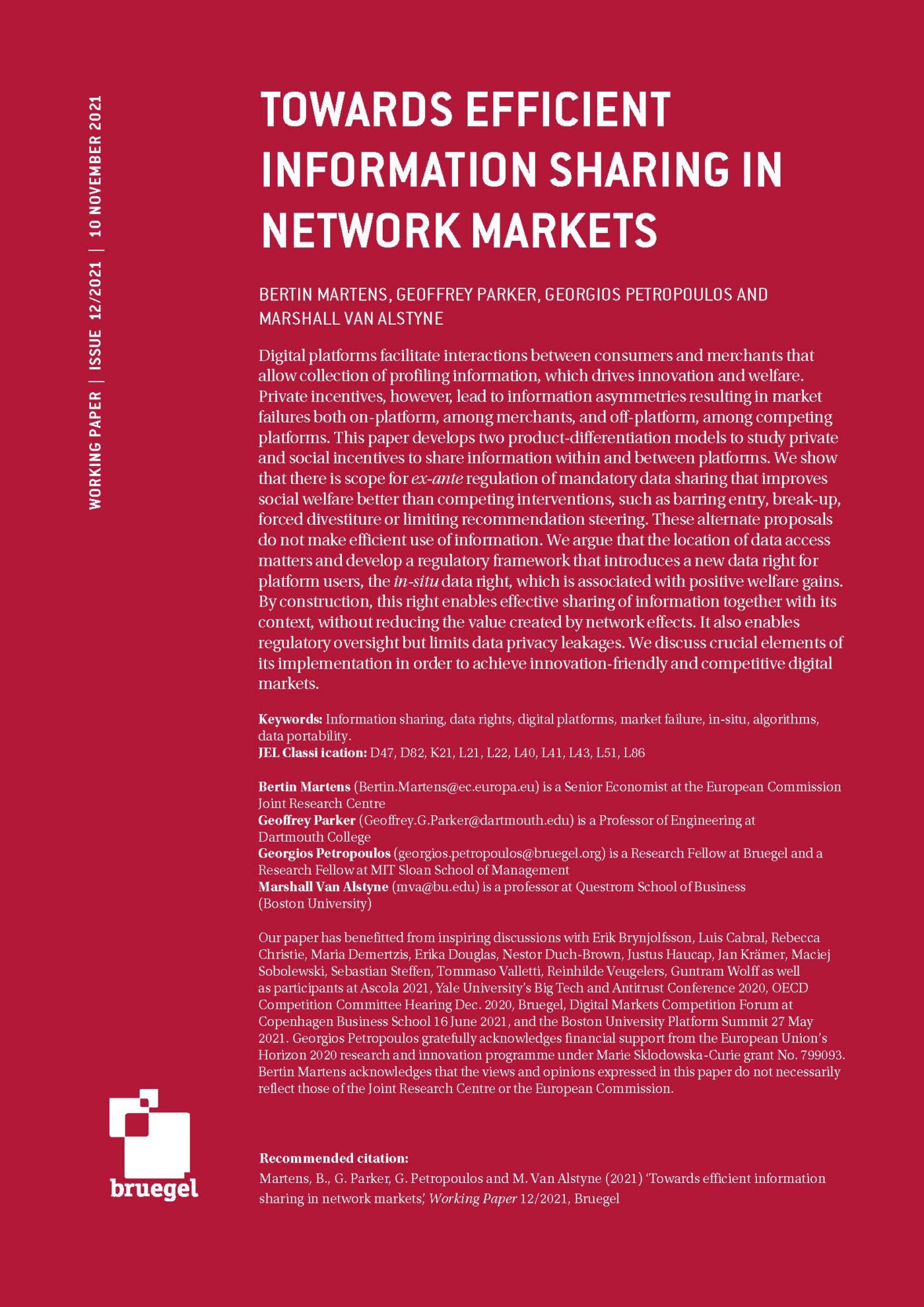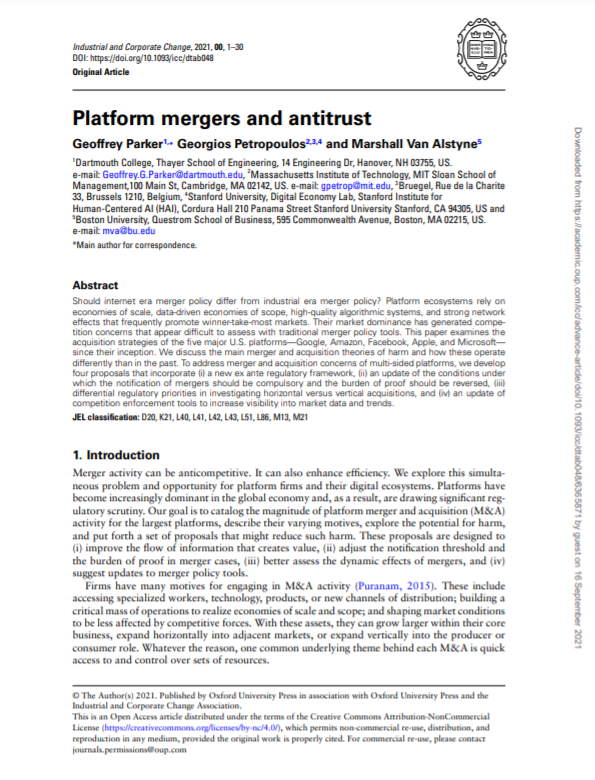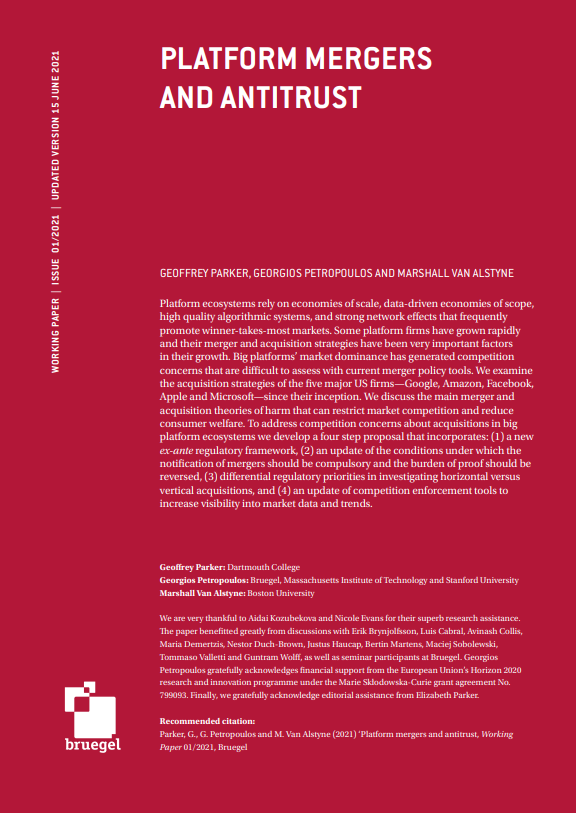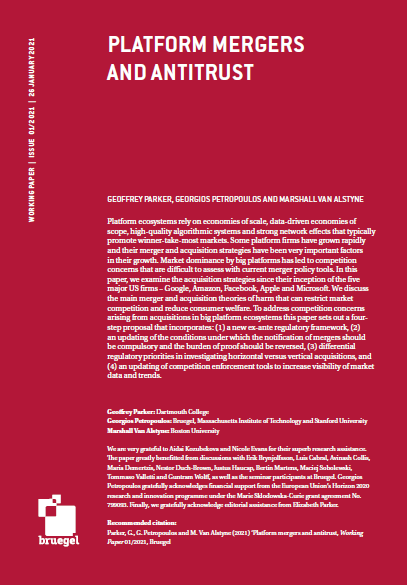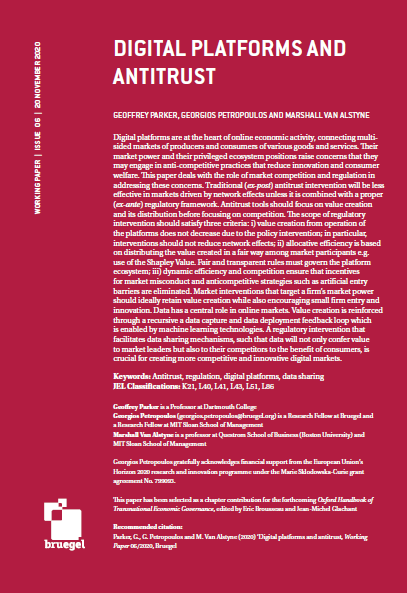External authors

Geoffrey Parker
Professor, Dartmouth College
Twitter: @g2parker
Geoffrey Parker is a professor of engineering at Dartmouth College where he also serves as Director of the Master of Engineering Management Program. In addition, he is a research fellow at MIT’s Initiative for the Digital Economy where he leads platform industry research studies and co-chairs the annual MIT Platform Strategy Summit. Prior to joining Dartmouth, Parker was a professor of business at Tulane University. He received a B.S.E. from Princeton and M.S. and Ph.D. from MIT. Parker has made significant contributions to the field of network economics and strategy as co-developer of the theory of “two-sided” markets. He is co-author of the book “Platform Revolution.” His current research includes studies of platform business strategy, data governance, smart cities and energy systems, financial services, and electronic healthcare record systems. Parker’s research has been funded by grants from the National Science Foundation, the Department of Energy, the states of Louisiana and New York, and numerous corporations. He serves or has served as department editor and associate editor at multiple journals and as a National Science Foundation panelist. Parker won the Thinkers50 2019 Digital Thinking Award, along with Marshall Van Alstyne, for the concepts of the inverted firm, two-sided markets, and how firms can adapt and thrive in a platform economy. Parker is a frequent keynote speaker and advises senior leaders on their organizations’ platform strategies. Before attending MIT, he held positions in engineering and finance at GE Semiconductor and GE Healthcare. Additional information can be found at ggparker.net, @g2parker, and Google Scholar.
